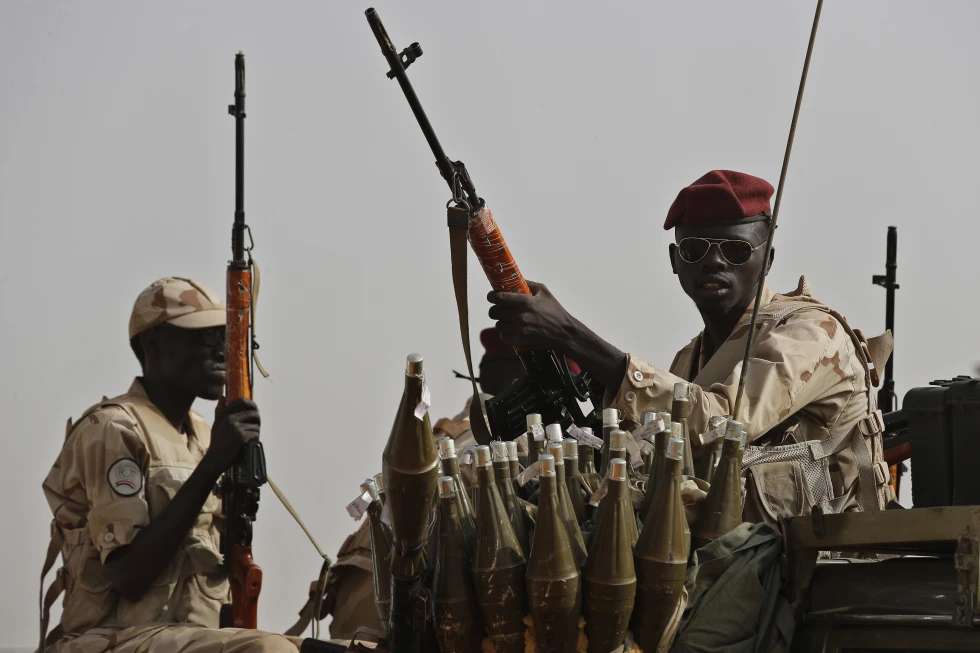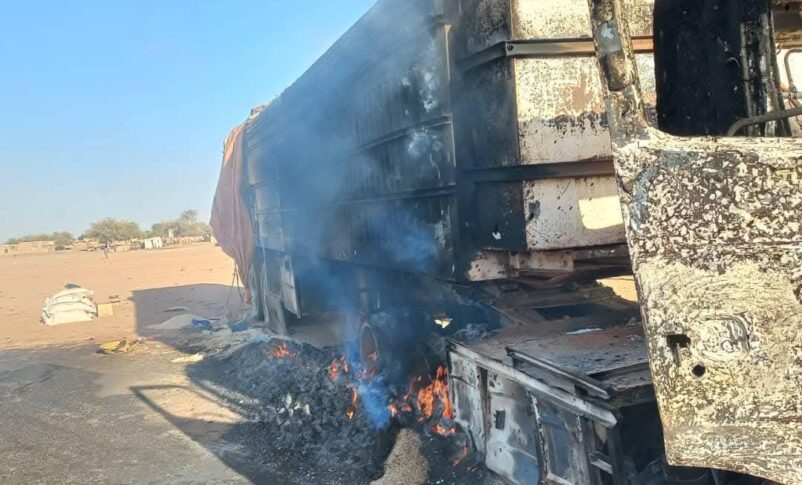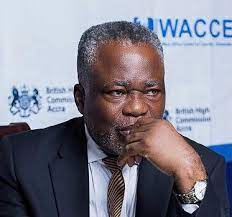Tensions between Sudan’s warring factions escalated further this week after a United Nations aid convoy was attacked in North Darfur, prompting mutual accusations from the Sudanese army and the paramilitary Rapid Support Forces (RSF).
According to Ibrahim Khater, Director General of the Ministry of Health in North Darfur, the RSF torched the aid vehicles belonging to the World Food Programme (WFP) and UNICEF in Al-Koma city in retaliation for military strikes on their positions the previous Saturday.
Khater firmly rejected any claims implicating the army in the incident.
“The army has no interest in burning aid or targeting humanitarian convoys. What happened is a crime committed by the militia to choke the residents of El Fasher.”
Ibrahim Khater
He also revealed that the bulk of the convoy was meant to reach El Fasher but had been held up for over ten days by RSF forces.
In a strongly worded statement, the Sudanese government condemned the attack, describing it as a deliberate obstruction of humanitarian work. The assault destroyed multiple U.N. trucks, the deaths of guards, drivers, and civilians, and injuries to several protection officers.
The government accused the RSF of “a blatant violation of international humanitarian law” and undermining its efforts to coordinate with the U.N. and other organizations to deliver critical aid to besieged areas. “While the government rejects this criminal act committed by the militia, it reiterates its full cooperation with the United Nations and humanitarian organizations,” the statement read.
The WFP had previously announced on May 14 that a convoy had departed Al-Debba in Northern State for El Fasher, carrying food and nutrition supplies. At the time, the agency stressed the mission’s urgency, warning that delays could worsen the famine risk for thousands.
RSF Fires Back After UN Aid Convoy Attack
Meanwhile, the RSF fired back, blaming the army for the deadly assault. Through its humanitarian wing, the Sudanese Agency for Relief and Humanitarian Operations (SARHO), the RSF claimed that Sudanese military aircraft struck the convoy in Al-Koma.
According to RSF figures, the airstrike killed five WFP staff members, injured four others, and destroyed nine trucks. The RSF described the event as part of “grave and systematic violations” aimed at disrupting humanitarian efforts, calling it a serious breach of international norms.
The RSF warned that such attacks could trigger “further deterioration of humanitarian conditions” and expose millions to starvation, disease, and isolation.

Adding to the accusations, Darfur’s regional governor, Minni Arko Minawi, also blamed the RSF. He claimed that the convoy had been targeted after officials refused RSF’s demands to redirect aid or unload the trucks elsewhere.
“As a result, a number of aid workers were killed, and the militia proceeded with looting and emptying the trucks that survived the fire,” Minawi wrote on Facebook. He called the act an “unacceptable and condemned terrorist” attack and accused the RSF of attempting genocide through such tactics.
Minawi further alleged that RSF had previously targeted WFP warehouses in El Fasher to eliminate storage facilities, and even accused some WFP staff of colluding with a foreign state backing the militia. He claimed those individuals had been expelled from Sudan and were now influencing operations from Nairobi and within Sudan.
In response, a UNICEF spokesperson confirmed that a U.N. convoy had been attacked in Al-Koma while awaiting clearance to proceed to El Fasher. “We received information that a convoy of WFP and UNICEF trucks was attacked last night… during its stop in Al-Koma in North Darfur,” she said. “Initial reports indicate a number of casualties.”
The WFP continues to push for aid delivery into El Fasher, which has remained under RSF siege since April 2024. The blockade, coupled with persistent fighting, has created a dire humanitarian crisis in North Darfur, marked by severe food and medicine shortages.
READ ALSO: Ghana Earns Over $1.1 Billion in Gold Exports in One Month


















